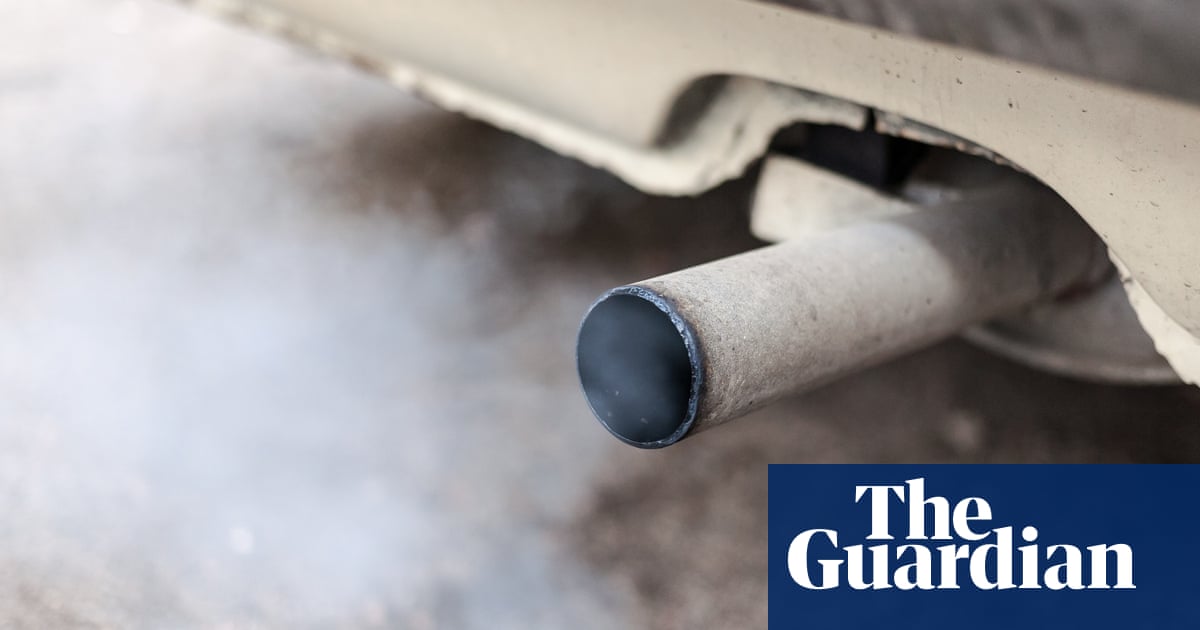The excess pollution emitted as a result of the Dieselgate scandal has killed about 16,000 people in the UK and caused 30,000 cases of asthma in children, according to a new analysis. A further 6,000 premature deaths will occur in coming years without action, the researchers said.
The Dieselgate scandal erupted in 2015 when diesel cars were found to be emitting far more toxic air pollution on the roads than when they passed regulatory tests, due to the use of illegal “defeat devices”.
Large fines and compulsory recalls of vehicles to remove or disable the defeat devices took place in the US. But experts say the UK and most EU countries have lagged far behind, leading to devastating impacts on health, and urge immediate action. Many millions ofhighly polluting diesel vehicles remain on the roadsin the UK and EU.
The analysis estimated the impact of only the excess pollution released due to the defeat devices, not the total emissions from the cars. In the UK, these excess emissions had led to 800,000 days of sick leave and a total economic burden due to deaths and poor health of £96bn by 2024.
Across the UK and EU combined, the fallout from Dieselgate has included about 124,000 early deaths and economic damage of €760bn (£637bn), the study estimated. Without action, a further 81,000 premature deaths and €430bn are projected by 2040, by which time most Dieselgate vehicles will no longer be in use.
“Our calculations reveal the widespread and devastating health impacts of excessive diesel emissions – thousands of lives cut short, countless children developing asthma, and an immense burden of chronic illness,” said Dr Jamie Kelly, at the Centre for Research on Energy and Clean Air (Crea), which conducted the research for environmental law group ClientEarth.
“This is a crisis with a long and lingering legacy,” he said. “Without action, these impacts will stretch far into the future, affecting generations to come. Governments have a responsibility to break this cycle.”
ClientEarth lawyer Emily Kearsey said: “The scale of the UK government’s response has been completely disproportionate to the public health crisis that we’re facing. Auto manufacturers have been trying to sweep the Dieselgate scandal under the carpet for too long. The UK government has the opportunity to finally stand up for people’s health and hold polluters accountable.”
Jemima Hartshorn, of campaign group Mums for Lungs, said: “Millions of diesel cars on our roads are still emitting toxically high levels of pollution and it’s costing our health, especially the health of our children.”
Defeat devices have been illegal since before the Dieselgate scandal but in 2020 new UK law placed a duty on the government to investigate vehicles suspected of using defeat devices. New powers in 2021 enabled the government to create laws that could force manufacturers to recall vehicles on environmental grounds. These powers have yet to be used, although it is believed a consultation is planned.
In 2023, ClientEarth sent a legal complaint to the government based on the strong evidence that many vehicles using defeat devices remained on the road. After this, thegovernment said in 2024that it was investigating 47 different car models under 20 brands by 11 manufacturers, and that more would follow.
In the US, regulators fined Volkswagen £1.45bn and the company also had to pay $5bn into pollution mitigation funds for its role in Dieselgate. It was also forced to fix the cars or buy them back. In contrast, the UK has imposed no fines on any car company nor forced any recalls. “In the UK, and the EU on the whole, there’s just not been anywhere near the same level of accountability,” said Kearsey.
Instead, individual consumers have been left to fight for financial compensation from manufacturers through the UK courts, leaving the excessively polluting vehicles on our roads. Almost 2 million consumer claims are now being pursued in the high court against 18 auto-manufacturers alleged to have used prohibited defeat devices.
In 2022, Volkswagen agreed to pay£193m to 91,000 driversin England and Wales. Some car manufacturers have undertaken voluntary recalls to fix the vehicles but public information on this is limited and only a small fraction of affected vehicles are likely to have been covered.
TheCrea reportused data on car fleets and real-world emissions and modelling to estimate the impact of the excess emissions due to Dieselgate. The models have been widely used in scientific research and the relationships between nitrogen dioxide and small particle pollution and ill health and deaths were taken from published studies.
The analysis considered emissions that were more than double the legal limit as excess and almost certainly due to the use of defeat devices. It covered such diesel vehicles approved from 2009. A stricter real-world emissions test was fully implemented in the EU in 2021.
Prof Suzanne Bartington, at the University of Birmingham, UK, said it was clear that the toxic emissions led to early deaths and disease. She said a more conservative approach would not have added the premature deaths from NO2 and from small particles together, as it is unclear to what extent each contributes to mortality individually.
“We tend to use the higher of either estimate,” she said. That approach would give an estimate of 13,000 Dieselgate deaths in the UK by 2024, rather than the Crea central estimate of 16,000.
On Monday, a regional court in Germanysentenced four former VW managers for fraud, with two sent to prison and two given suspended sentences.
A Department forTransportspokesperson said:“Defeat devices are illegal, misleading for drivers and can have negative health impacts on the public. We routinely and robustly check vehicles against emission standards and acted quickly to set up an investigation on this matter. We will work with industry to resolve any issues identified.”
